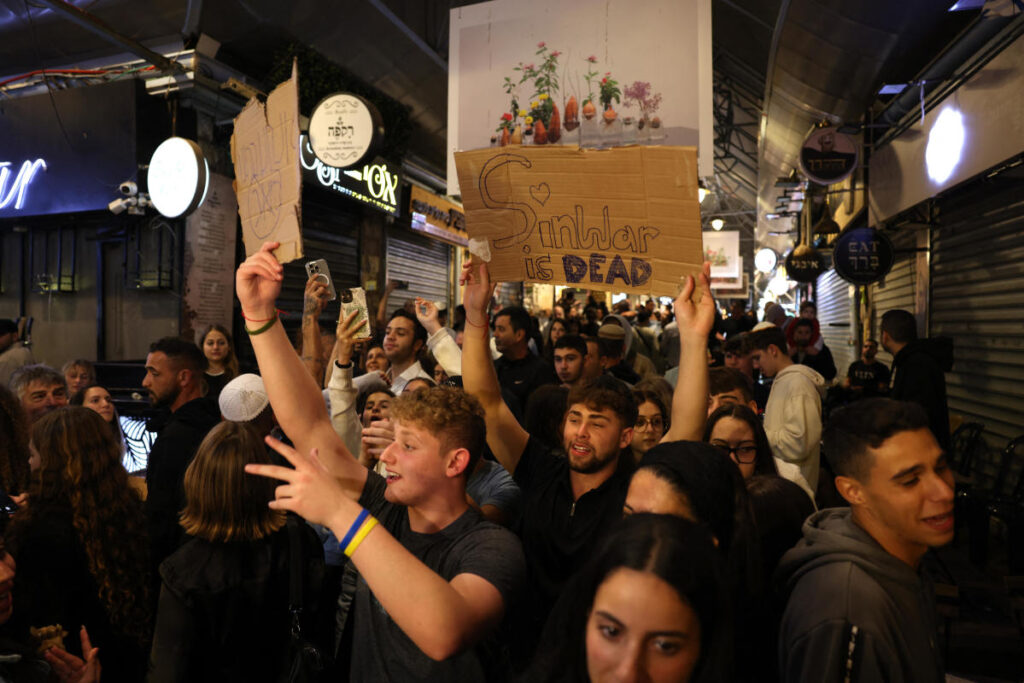On Thursday, Israeli Prime Minister Benjamin Netanyahu addressed the killing of Hamas leader Yahya Sinwar, proclaiming it as a significant achievement yet emphasizing that Israel’s mission remains unfinished. His statement underscores Israel’s priority of securing the release of approximately 100 hostages currently held in Gaza, many of whom were captured during the brutal Hamas offensive on October 7, 2022. Netanyahu reassured the families of the hostages that the Israeli government was wholeheartedly committed to their safe return, expressing this as a personal obligation. The backdrop of this conflict remains tense, as a substantial number of those hostages are feared to have already lost their lives.
The U.S. government, represented by President Biden, expressed approval of Sinwar’s assassination, framing it as positive not just for Israel but for the broader international community. Biden emphasized that Sinwar’s death, after nearly twenty years of Hamas governance in Gaza, should be viewed as a potential turning point toward establishing peace. He urged Netanyahu to leverage this moment for creating opportunities for a cease-fire. However, Hamas’s response was notably dismissive regarding prospects for a cease-fire, with leaders asserting that the organization’s strength would not be diminished by the death of Sinwar. Instead, they portrayed it as part of a larger struggle that would continue despite leadership changes.
Sinwar’s leadership had been pivotal for Hamas, serving as the group’s top commander since 2017 and becoming its overall leader just a few months prior to his death. Several Hamas officials commented on the implications of his killing, with some arguing that his death would complicate political negotiations but not derail the group’s resistance. The sentiment was that the Palestinian struggle is not simply personified by singular leaders, but is sustained by collective institutional strength. Consequently, there remains a belief within the movement that their fight will endure despite setbacks in leadership.
Israeli public reaction to Sinwar’s death was mixed. Many celebrated, expressing relief and joy, while others were more cautious about interpreting this event as a potential solution to end the ongoing conflict. Families of the hostages still in Gaza gathered in rallies, voicing their fears that the demise of Sinwar might lead to negative repercussions for the captives. Concerns were raised about the possible threat to the lives of remaining hostages, many of whom have suffered extended captivity without communication with their families, leading to growing despair over their fate.
As the conflict has escalated since Hamas’s October 2022 attack, Israeli military operations have inflicted severe casualties on Palestinian civilians in Gaza. According to health ministry reports from the enclave, the conflict has resulted in more than 42,400 Palestinian deaths and widespread displacement among the 2.3 million residents of Gaza. As violence continues, recent Israeli military actions have escalated significantly, even following Sinwar’s assassination. This intensification points to a reluctance from Israeli authorities to scale back operations in light of announcements of potential peace discussions.
The perspectives of individuals living in Gaza tend to reflect a sense of hopelessness regarding the conflict and the impact of Sinwar’s killing. Many view the leadership changes as irrelevant to the larger context of their suffering, believing that replacements for leaders like Sinwar will simply emerge. Amid the relentless bombardment and humanitarian crises, the voices of ordinary Gazans express a yearning for an end to violence and a return to normalcy, showcasing the ongoing cycle of despair and resilience that characterizes life in a war-torn region.

